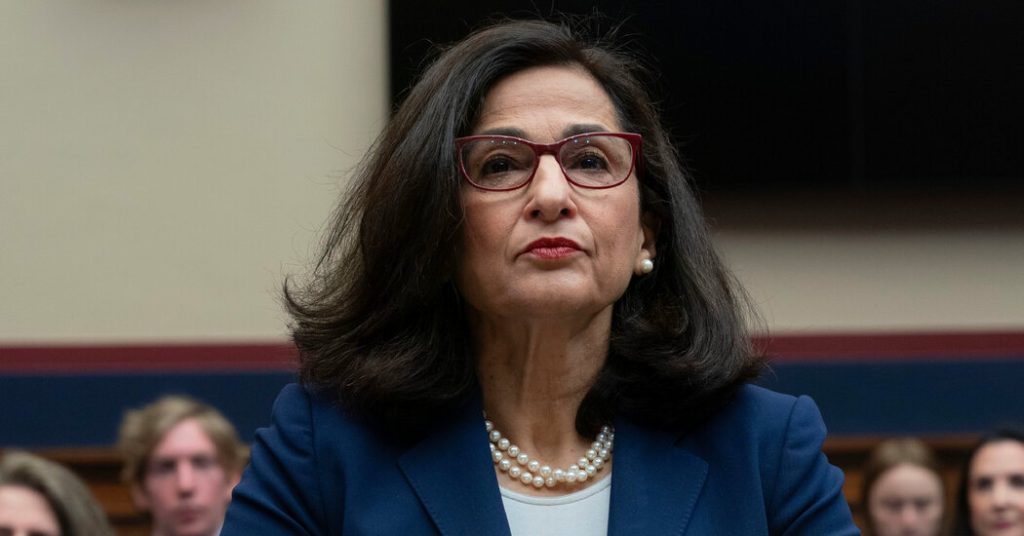The Republican party is putting pressure on universities to silence critics of Israel, as evidenced by recent events at the University of Southern California and Columbia University. At USC, the graduation speech of a Muslim valedictorian was canceled due to criticism from Jewish groups over her pro-Palestinian social media activity. This decision was made in response to government pressure and the expectation that universities must keep students safe. Meanwhile, Republican lawmakers, such as Rick Allen from Georgia, are using biblical passages to suggest that universities will be cursed by God if they do not support Israel. This kind of rhetoric is intimidating and aims to stifle free speech and diversity of opinion on college campuses. Additionally, Republican Brandon Williams compared diversity, equity, and inclusion statements to Nazi loyalty oaths, further demonstrating a lack of tolerance for differing viewpoints.
In response to the pressure from Republican lawmakers, universities are taking drastic measures to address criticisms related to Israel and Palestine. For example, Columbia University called the police to dismantle a “Gaza solidarity encampment” organized by students, resulting in over 100 arrests. This move by the university administration, which has not been seen since 1968, has shocked many on campus. The heavy-handed response to student protests and actions shows the lengths to which universities are willing to go to avoid political backlash and remain in compliance with government expectations. It raises concerns about the limitations on academic freedom and the ability for students and faculty to engage in meaningful dialogue on contentious issues.
The tactics employed by Republican lawmakers and university administrators are having a chilling effect on free speech and academic freedom across the country. Students and faculty members are feeling pressure to conform to a certain narrative and avoid expressing dissenting opinions on topics like Israel and Palestine. The cancelation of the valedictorian’s graduation speech at USC and the dismantling of the Gaza solidarity encampment at Columbia are clear examples of the impact of this pressure. It is clear that universities are now operating under a microscope, with government regulators expecting them to take action to protect students and maintain a safe campus environment, even if it means limiting free expression and stifling political activism.
The use of biblical passages and comparisons to Nazi loyalty oaths by Republican lawmakers is a concerning trend that further undermines the principles of free speech and academic freedom. By invoking religious beliefs and historical atrocities to intimidate critics of Israel, these lawmakers are sending a clear message that supporting Palestinian rights will not be tolerated. This kind of rhetoric contributes to a divisive and polarized atmosphere on college campuses, making it difficult for students and faculty to engage in open and honest dialogue on complex political and social issues. It is imperative for universities to uphold their commitment to academic freedom and protect the rights of all members of their community to express their views without fear of reprisal or censorship.
The events at USC and Columbia highlight the precarious position that universities find themselves in when faced with political pressure and threats to their funding and reputation. The cancelation of a valedictorian’s speech and the arrest of students participating in a Gaza solidarity encampment demonstrate the lengths to which universities will go to avoid controversy and maintain a positive relationship with government regulators. These actions raise questions about the role of universities in promoting free speech and social justice, and the extent to which they are willing to sacrifice these principles in order to appease political interests. It is crucial for universities to uphold their values of diversity, equity, and inclusion, and to protect the rights of all members of their community to engage in robust and respectful debate on important issues facing society.


